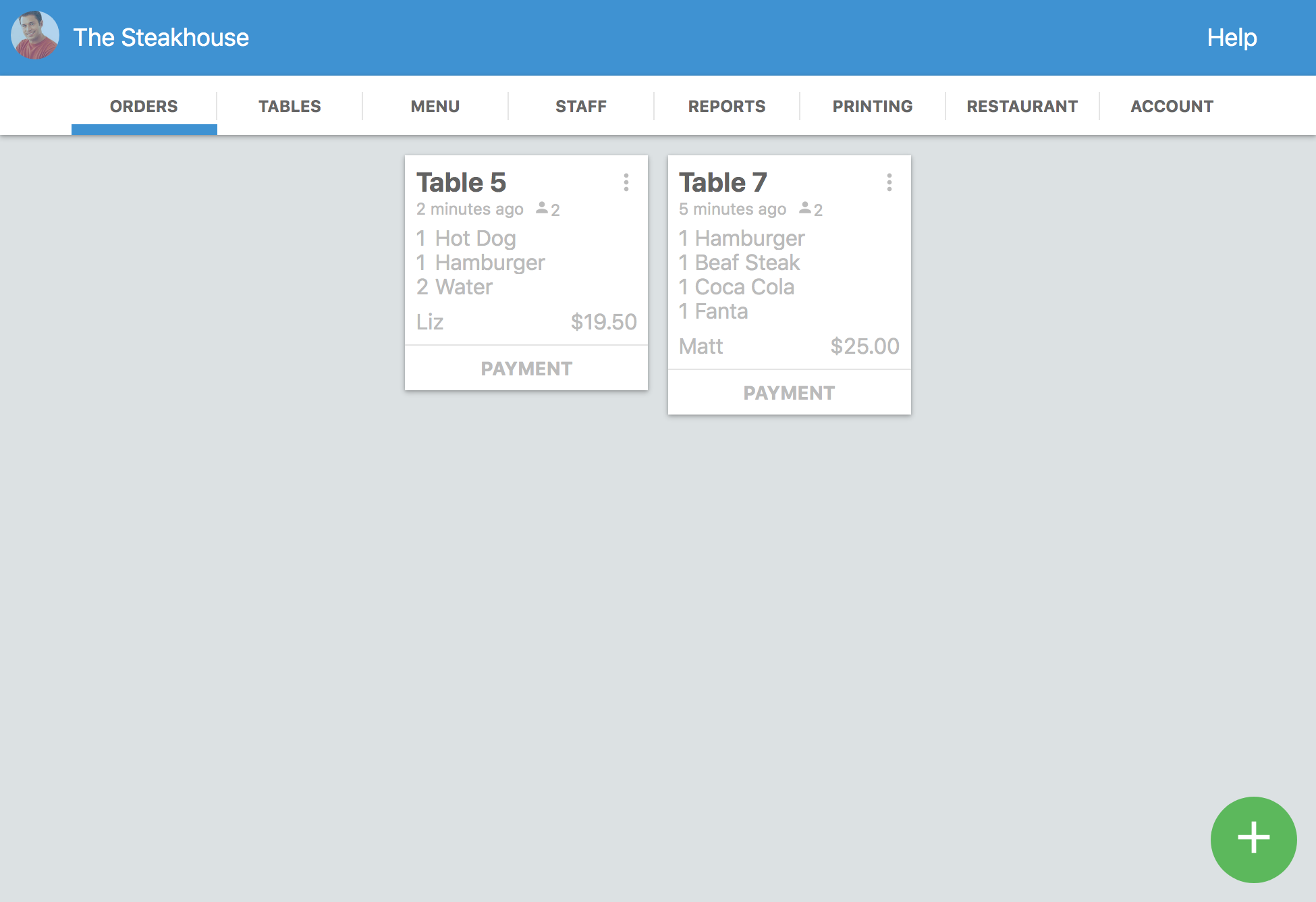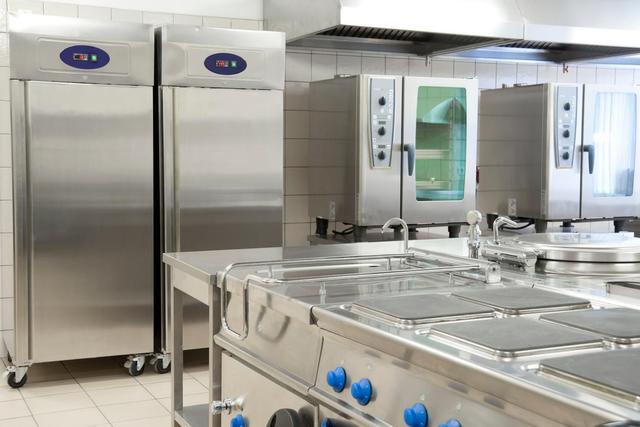Recruiting, managing and staffing your restaurant can generate problems and solutions. If you do the job fairly and professionally, you can inspire loyalty and create a team of favorable brand ambassadors who could be your restaurant's greatest resource. Satisfied employees recruit their skilled friends, serve as brand ambassadors and attract high-profile job candidates. That’s why it’s critical to plan your hiring, recruiting and everyday HR management when developing your business plan.
Dealing with Your Own Weaknesses as a Restaurateur
Your first and most important hiring decisions should be to shore up your business weaknesses. If you’re a back-of-the-house person who enjoys creating menus, training chefs and even working the line, you might need someone who understands business software, marketing or front-of-the-house management duties. Some restaurant owners love interacting with the guests, and if this makes you uncomfortable or you have other duties you don't want to delegate, you'll need to hire someone to assume these duties. If you love making the rounds among the tables and guests, you'll need someone strong to manage the kitchen.
Identifying what types of employees you need, which skills they need and what training programs you can offer for career development is a crucial part of your HR planning. Every team will need a manager, so it's important to learn how teams function. That doesn’t mean that your employees shouldn’t be able to approach you or the general manager with any concerns that aren’t being addressed, but staff should first follow the chain of command for most staff management issues.
Using Technology to Manage Your Employees

Technology can simplify managing your employees in many ways while streamlining your operation. Intuitive software can calculate payroll, manage voluntary, mandatory and court-ordered payroll deductions and automate the preparation of government and insurance reports. The right hardware and software can also brand your restaurant in ways that attract skilled workers. CRM and ERP software can help to estimate your staffing needs based on the season, holidays, local festivals and time of day. It's important to have enough staff to cover your needs without spending more on payroll than necessary. Your servers won’t be happy if you’re overstaffed because they won’t earn enough in tips.
However, getting an easy and convenient POS system can make it easier for your staff to take orders, generate custom reports, manage their tables more effectively and take payments right at the table. Waiterio offers free plans for small restaurants that take fewer than 100 orders a month and paid subscription plans for multiple currencies. The system is highly intuitive, so your staff won’t need lots of training.
The Millennial Conundrum

Restaurants throughout the world are experiencing unprecedented hiring difficulties. Referrals remain the most effective way to hire restaurant employees, but technology has changed how referrals are made. Social media, personal networks of friends and associates, online job boards and professional headhunters have replaced the traditional word-of-mouth referrals with media-based referrals using digital technology. One hiring study by Jobvite found that it takes less time and expense to hire a referred candidate than it does for a general applicant. Referrals also stay at their jobs longer and experience greater job satisfaction.
Millennials often care more about their working environment and the restaurant's concept than their rates of pay. Jobs at restaurants command increasingly higher rates of pay--especially for skilled positions and celebrity chefs. However, millennials respond well to schedule flexibility, the restaurant's supply chain details and working in a diversified environment. Many millennials care a great deal about their career prospects and how their networks of friends will view their jobs instead of their immediate entry-level salaries and benefits.

Recruiting and Hiring
It's critical to provide an appealing work environment to attract skilled employees. Just creating a self-service portal where employees can access their records, change their personal information, request time off and get information about their benefits can be a big plus. If employees can onboard and offboard easily, the restaurant’s operations will appeal to computer-savvy millennials.
Millennials are expected to make up about 75 percent of the world's workforce by 2025, so it's critical to recruit them effectively. Some of the best practices for recruiting and hiring restaurant employees include:
- Compose Appealing Job Descriptions
Effective recruiting requires strong self-promotion. It's important to create vivid and appealing job descriptions.
- Use Your Website for Recruiting
Millennials often prefer to seek restaurants where they feel that they'd enjoy working, so use your website to promote the benefits of working for your company.
- Take an Active Role in Social Media
Social media connections and referrals are increasingly critical platforms for branding and recruiting. Hiring staff can also use social media to research job candidates.
- Target and Assess Job Candidates
You can use many digital tools to assess candidate skills and attitudes.
- Promote Social Causes and Local Events
You can get lots of recruiting benefits by supporting worthwhile causes favored by your targeted customers and preferred job candidates.
- Encourage Existing Employees to Promote Your Restaurant
Loyal and satisfied employees can become your greatest hiring resource when they post favorable content about your business.
- Screen Candidates by Phone
It's important to develop a checklist of what you're looking for in employees for each restaurant position.
- Identify Candidates for Career Development
The quicker that you identify prospects for promotion and cross-training, the greater their job satisfaction will be.
- Keep Resumes on File
As you receive resumes, keep important information on file. You might not need a chef at present, but maintaining open lines of communication can prove invaluable in future recruitment efforts.
- Provide Training and Mentoring
You can save considerably on the average cost of hiring and training staff by creating a proprietary program of self-study. Your training tools can include written materials, tests, videos, photos and other training aids. Add the human touch to your training strategy by assigning mentors or coaches for new hires to help them learn their duties.
- Give Employees Networking and Tableside Tools
If you want your employees to help your recruiting efforts, it's important to encourage them. Recognize their social efforts, reward them for demonstrating social responsibility and create a diverse work environment. Encourage your employees to develop empathy for people from other cultures and socioeconomic backgrounds.
Risk Management and Safety for Employees

Restaurateurs must be prepared to address a variety of employee safety issues. Old or faulty equipment, sanitation issues, slips and falls, cuts, burns and foodborne illnesses are common risk factors in restaurants. Bar staff members have the added perils of dealing with drunk and rowdy customers and making sure not to serve alcohol to minors and inebriated customers, which could raise liability issues for any related accidents, drunk driving incidents, fights, etc. If one of your employees harasses or bullies others, you could face a harassment or discrimination lawsuit.
Risk management, insurance coverage and employee safety programs are necessary to protect your guests and employees. Creating a safe, appealing and nurturing work environment is the best way to jumpstart your recruiting efforts and build employee loyalty, and that in turn, will attract the right kind of regular customers.
An appealing environment is just as important for entry-level employees as it is for high-profile job candidates. Nurturing staff with regular promotions, pay raises and increased responsibility will inspire greater loyalty, help with succession planning for key positions and make your employees proud to work for you. Encourage a team atmosphere, support sustainability and local sourcing, provide flexible work schedules and deal with harassment and discrimination issues promptly.





